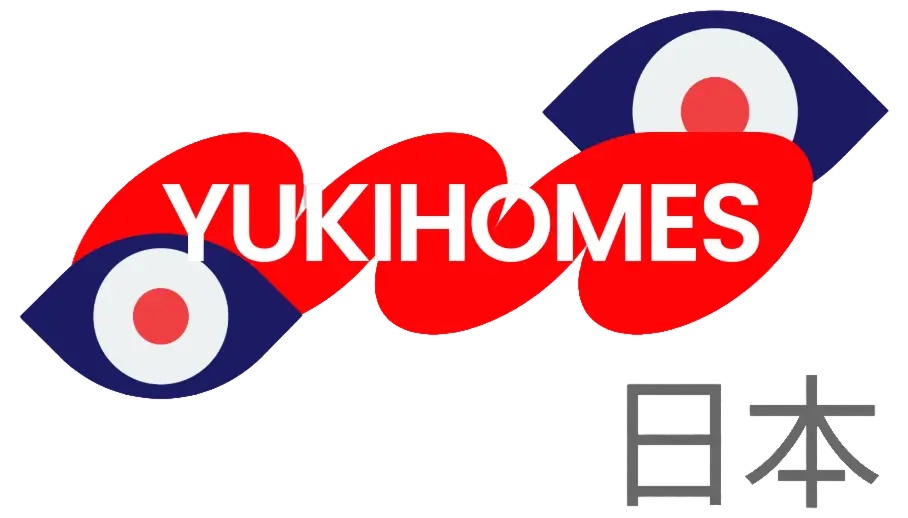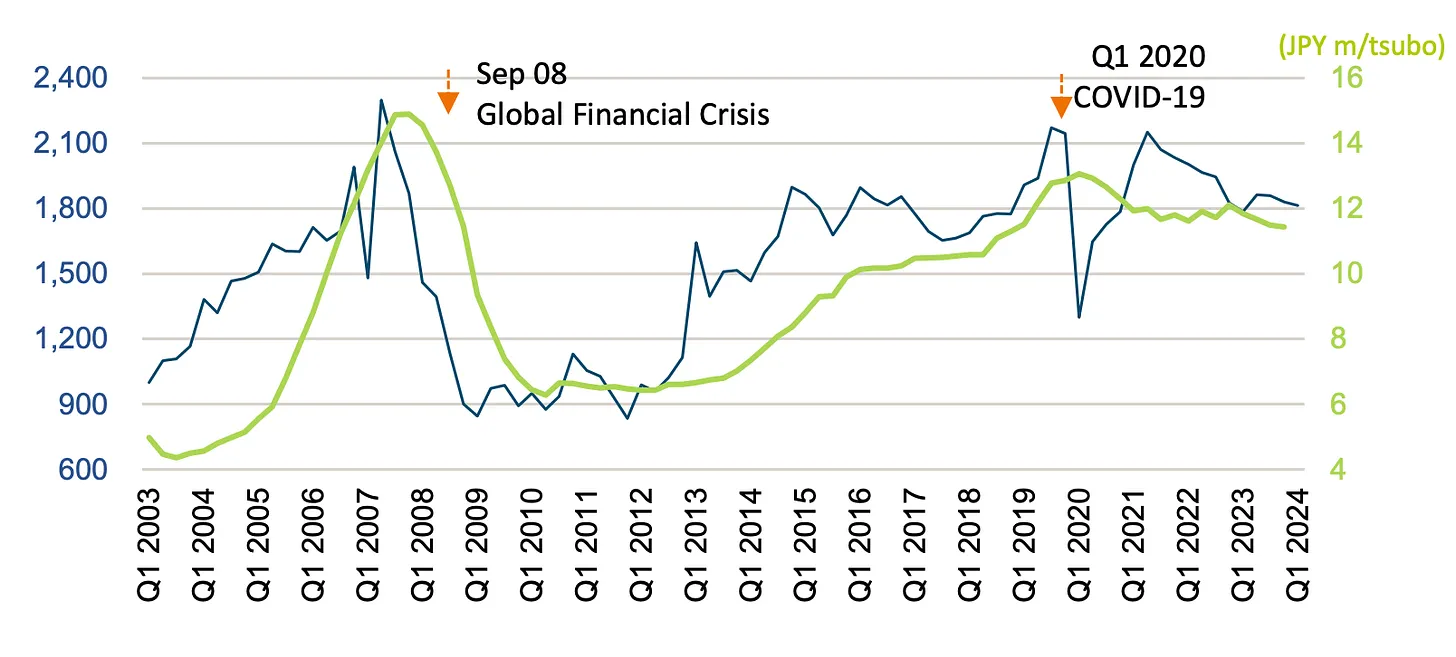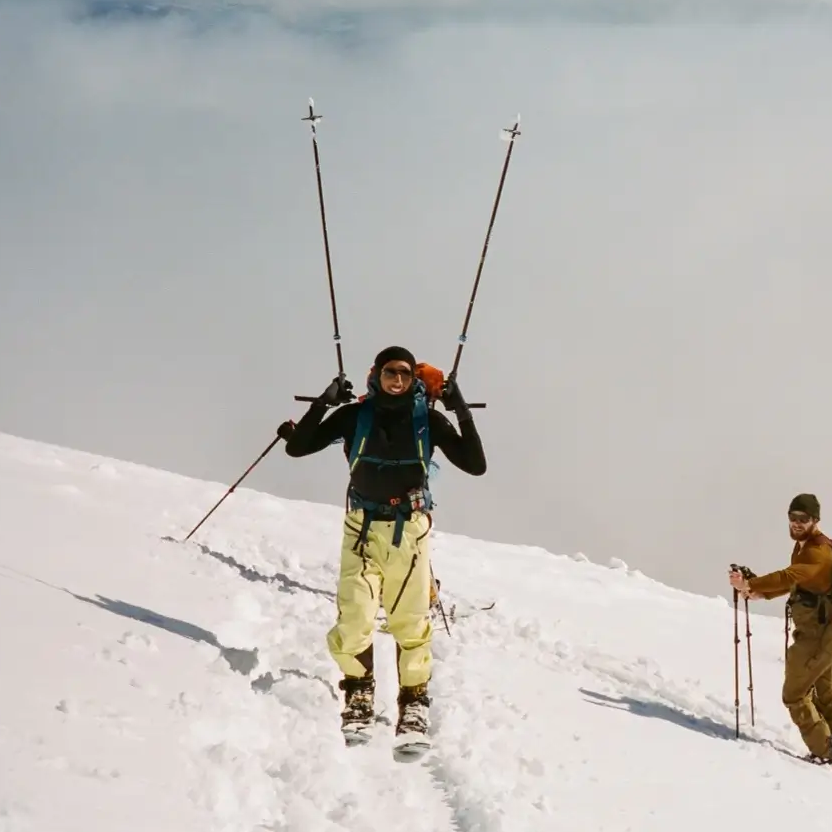While American investors chase overpriced properties, smart money is looking East
Let me start with a question that's been keeping me up at night: When was the last time you found a rental property in the U.S. that delivered double-digit returns without being in a war zone?
I'll wait.
While American real estate investors fight over scraps—bidding wars for properties with 3% cap rates, dealing with skyrocketing insurance costs, and navigating tenant-friendly regulations that seem designed to bankrupt landlords—there's a massive opportunity sitting 5,000 miles west that most people are completely ignoring.
The Numbers Don't Lie
United States, 2025:
- Average rental yield: 2-4%
- Median home price: $420,000
- Cash flow after expenses: Often negative
- Market trend: Overheated, unsustainable
Japan, 2025:
- Average rental yield: 8-15%
- Median investment property: $40,000-80,000
- Cash flow after expenses: Consistently positive
- Market trend: Stable, opportunity-rich
I'm not cherry-picking data here. These are real numbers from real deals we've closed for clients in the past six months.
Why Japan Works (And Why It's Misunderstood)
Most Americans hear "Japanese real estate" and think of two things: economic stagnation and properties that lose value. Both are partially true, and both are exactly why this opportunity exists.
Japanese properties depreciate. In the U.S., this sounds like a disaster. In Japan, it means buy once and rent forever with minimal competition from other investors who are obsessed with appreciation.
The population is declining. Again, sounds terrible until you realize this creates massive oversupply in most areas, which means incredible deals for informed buyers who know where demand actually exists.
The yen is weak. What costs $100,000 USD today might have cost $140,000 just three years ago. Currency is working in your favor.
Tourism Is The Secret Sauce
Here's what changed everything: Japan reopened to tourism in 2022, and the numbers have been staggering.
Hokkaido tourism statistics:
- 2019: 15.8 million visitors
- 2022: 8.2 million (reopening year)
- 2024: 22.1 million visitors (+40% from pre-pandemic)
That's not just recovery—that's explosive growth. And most of these visitors are looking for authentic experiences, not hotel chains. They want to stay in local homes, ski-in/ski-out properties, and traditional Japanese houses.
Short-term rental demand is through the roof:
- Niseko properties: 85-95% occupancy during ski season
- Rusutsu area: 70-80% occupancy (up from 45% in 2022)
- Average daily rates: $150-400 USD depending on property and season
The Investment Thesis
Let me walk you through the math on a typical deal:
Property: 3-bedroom house in Hokkaido ski area Total investment: $95,000 USD (purchase + luxury renovation) Annual rental income: $16,200 USD Annual expenses: $2,800 USD (management, taxes, maintenance) Net cash flow: $13,400 USD Cash-on-cash return: 14.1%
Compare that to buying a $400,000 rental property in Austin: Total investment: $400,000 USD (if you're lucky enough to buy cash) Annual rental income: $24,000 USD Annual expenses: $8,000 USD (taxes, insurance, maintenance, vacancy) Net cash flow: $16,000 USD Cash-on-cash return: 4%
You need $325,000 less capital to generate 75% of the cash flow. The math is absurd.
But Wait, There's More (Real Advantages)
Tenant quality: Japanese renters and short-term rental guests are incredibly respectful. Property damage is rare, payment issues are almost nonexistent.
Regulations: Japan's short-term rental regulations are clear and stable. No sudden bans, no arbitrary rule changes by local governments.
Management: Professional property management costs 8-12% of rental income and actually delivers value. Try finding that level of service in the U.S.
Diversification: Your portfolio isn't tied to U.S. economic cycles, U.S. interest rates, or U.S. political chaos.
The Risks (Because They Exist)
I'm not going to blow sunshine up your ass here. Japanese real estate investment has real risks:
Currency risk: The yen could strengthen against the dollar, making your investment more expensive in USD terms.
Distance: You're managing properties 5,000+ miles away. Emergencies happen at 3 AM your time.
Language barrier: Everything is in Japanese. Every document, every conversation, every emergency.
Cultural differences: Business practices, legal requirements, and expectations are different.
Natural disasters: Earthquakes, typhoons, and heavy snow can damage properties.
But here's the thing—every investment has risks. At least these are quantifiable and manageable with the right team.
The Opportunity Window
This opportunity won't last forever. Smart money is already moving:
- Australian investors have been buying Hokkaido properties for years
- Singaporean and Hong Kong money is flooding certain markets
- Even some major U.S. funds are starting to pay attention
What's driving urgency:
- The 2030 Sapporo Winter Olympics bid (decision coming in 2025)
- New ski resort developments in emerging areas
- Weak yen creating once-in-a-decade buying opportunities
- Recovery in international tourism exceeding all projections
Who This Works For (And Who Should Stay Away)
This investment makes sense if you:
- Have $50,000+ in cash available
- Want high cash flow returns
- Can handle some complexity and distance
- Understand this is a 5-10+ year investment
- Want portfolio diversification outside the U.S.
Stay away if you:
- Need appreciation to make your returns work
- Want completely passive investing
- Can't handle currency fluctuations
- Need quick access to your capital
- Are looking for a get-rich-quick scheme
The Bottom Line
American real estate is expensive, over-leveraged, and delivering terrible returns for the risk involved. Meanwhile, Japanese properties in the right markets are delivering the kind of cash flow returns we used to see in the U.S. 20 years ago.
Is Japanese real estate the smartest investment of 2025? For the right investor, with the right guidance, in the right markets—absolutely.
The question isn't whether this opportunity exists. The question is whether you're positioned to take advantage of it while it's still available.
Ready to explore Japanese real estate?
Book a free consultation to discuss your investment goals and see properties in your budget.
Want our monthly top 10 property picks?
Subscribe to our exclusive paid newsletter for insider market access and detailed ROI analysis.
Connect with us: Yuki Homes Website | Free Property Search: Nipponhomes
Share this post and help us get 5 new subscribers to earn your custom Yuki Homes heavyweight tee—quality you can feel, designed in Brooklyn.
Take the Next Step
Join our community for exclusive insights and resources on Japanese real estate investments.

Our team
Meet the founders.

Derek has been working in the Airbnb space for the past 10+ years and recently purchased a home in Japan. He is excited to bring this investment opportunity to others in the States & abroad.

Nick has a passion for adventure and has always dreamed of owning a property in Japan. His dreams finally came true when Derek brought him in on a deal of a lifetime in Hokkaido, Japan - one of Nick's favorite places on Earth.


